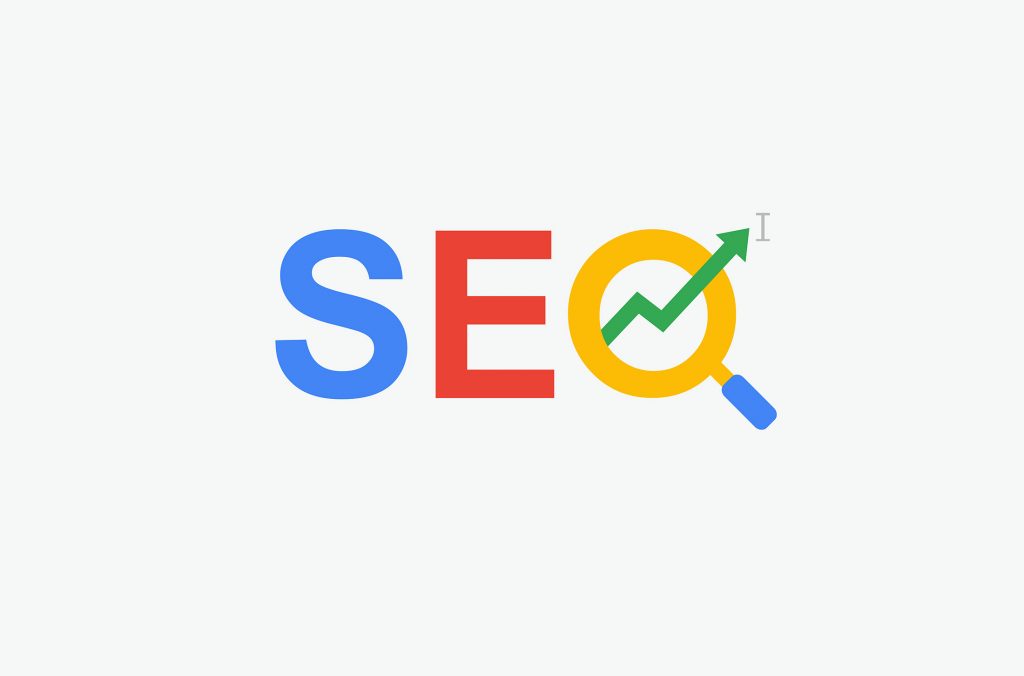How to Get on the First Page of Google

The WebTek Experts Dig into the Most Important SEO Question
The age-old, million-dollar question. It’s what everyone wants to know, because it’s where everyone wants to be… yet there’s only about 10 spots to fight for with any particular search phrase. Surprisingly, the answer to this question, “How to get on the first page of Google,” is relatively simple. All you have to do is … outrank the others!
Well, how exactly do you do that? Again, pretty simple… whatever they’re doing, do it better! Chances are if they’ve made it to page one, they’re doing something right. Bam, things just got hard quickly. Hey, no one ever said it would be easy! Stay tuned, though, because we are going to break down the very process we use here at WebTek to get you going in the right direction. And if you ever want to turn things over to the pros, we’re a full service digital marketing agency with 20 years of experience!
To help get you on the first page of Google, we’re going to run through an exercise together using a fictitious company demonstrating how the WebTek experts tackle this problem.
For our example, we’ll be using a company called “John’s Garage” where John is a mechanic that fixes cars and offers oil changes and state inspections. Like everyone else in the world, John wants to know how to be on the first page of Google.
Essential Website Optimization Steps
While getting a website to skyrocket to the top of Google searches can be a gradual process, success begins with these essential website optimization steps. While our SEO services are a bit more in-depth, this is the blueprint that we follow to build a strong base.

One of the first things we do in our SEO Packages is keyword research. In this step, we discover all the keyword phrases people are actively searching for that match the services we provide. We filter matches by search volume and competition level and organize them into categories. We then assign (map) those categories to website pages and build those pages optimized around the keyword phrases in that category.
For instance, a website’s home page should be optimized around what the company actually is. In this case, John’s Garage is a “garage where mechanics fix cars”. But keyword research might show “garage” is not the right keyword because it’s used for so many other things: homes have garages, construction workers build/repair garages, people park in parking garages, etc… We might also find that most people aren’t searching for “mechanics”, but rather a “car repair shop” where mechanics work. Breaking that down even further, is “car” even the right word in that phrase or should it be auto, vehicle, truck, SUV, or Minivan… or a combination of all of them? Keyword research shows which the most important phrase in the category is, then the second, the third, etc.
This is why keyword research is so essential. We don’t have to make guesses as to what the most popular search terms are — we can see how many real people search for them every month!
The reason keyword research is the first of our website optimization steps is that it helps us find the most important keywords to use throughout your site. Throughout your website, you’re looking to signal to Google what the most important keywords — AKA information — are on the site. This dictates how we structure your URL and how we write your header tags and page titles. We then write compelling content around those chosen keyword phrases, sprinkle in some strategic marketing, and dazzle with user experience.

Another service/category John’s Garage performs are state inspections. We would make a page just for that and optimize that page all around state inspections, car inspections, and whatever other keywords our research revealed. We will even answer questions on this page that demonstrate high search volume like, “How much do state inspections cost?”, “How long is a car inspection good for?”, “Will bad tires pass inspection?”, and so on.
Generally, the longer and more complete this page about state inspections can be, the better it will fare in search engines. The more value you can provide Google’s customers, the higher Google will rank you.
Think about it from Google’s perspective: if Google sends 100 customers to Site A and the average person spends 4 minutes on the site, browses 5 pages and fills out a form… and then Google sends 100 customers to Site B who only spend 15 seconds over 1 page and then exit the site, which website (A or B) will Google start ranking higher? The one with better results for its customers. It’s vital for your pages to be engaging and helpful – after all Google is keeping track! Having a website that people enjoy using is a necessary website optimization step.
The more complete, optimized pages on your site, strategically organized by keyword search volume, the better your chances of being ranked. A website with 20 optimized pages has 2-times the potential of being found online than a site with 10 pages. So even if your main focus is your homepage making sure the other pages are golden is a key part of the website optimization steps.

Other websites that link to your website are called backlinks. Backlinks are one of the highest ranking factors Google looks at. If one site has 10 backlinks pointing to it and another site has 100 backlinks, which looks more important to Google? It’s like a popularity contest – getting as many people to link to you as you can.
However, not all backlinks are created equal in ranking weight. In our John’s Garage example, a backlink from the local Chamber of Commerce is great, but a link from Pennzoil Motor Oil will carry a ton of link juice (yeah, that’s a thing). The higher ranking, more authoritative, more related the link source is, the more link juice it passes to your ranking possibilities….That is, of course, if the source stamps the link as “do-follow” and not “no-follow”, but don’t get too hung up on that.
The more positive signals Google sees from across the internet, the higher your chances are of ranking better. They gather intelligence from other websites, online reviews, social sites, directory listings, and more, along with everything they find on your website itself. All these things are considered search engine optimization (SEO).
Remember back at the beginning of this article I said the secret to outranking others was to do it better? Well, there’s a lot of truth to that. Look at the Google search results for a keyword phrase you want to be found for. All the ones that rank above you are your competitors. Study the 5 top ranking pages and find out what they have in common and why Google rewards them. Then combine all those good things (with your unique spin on them) into 1 massive new page on your website, giving your page the potential to leapfrog the others. Make it better than the others. If they have “The Top 10 things for _____”, make yours “The Top 25 things for _____”

One other way to accelerate the somewhat slow process of SEO is to give your page or content piece a boost with paid traffic. Just like we noted before, Google is keeping track of how people react to your content. The longer they read and the more pages they visit, the higher your ranking can go. However, if you aren’t ranking currently, it can be pretty challenging to have visitors find your valuable content in order to enjoy it.
That’s why one of our favorite secret weapons to reach the first page of Google is to run social media ads — targeted to your precise demographic — encouraging them to visit your site. This influx of fresh and interested traffic can kickstart your rankings.
Only Scratching the Surface
There are literally hundreds of factors that play into Google’s ranking algorithm, and we barely scratched the surface with this blog. But hopefully this can jumpstart your strategic thinking and help you propel your website pages to the top. If you would rather let the experts help get you to the first page of Google, reach out to our marketing consultants and they’ll be glad to help get you on an internet marketing plan best suited for you!



